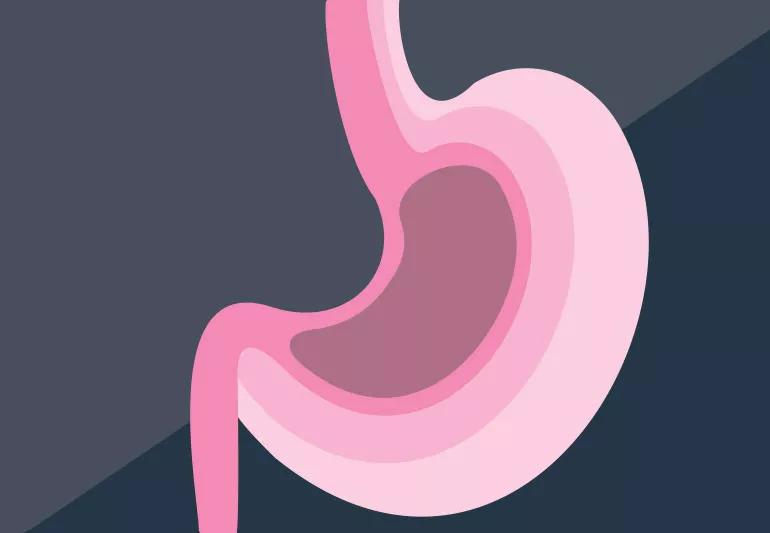The short answer from a gastroenterologist

Image content: This image is available to view online.
View image online (https://assets.clevelandclinic.org/transform/6a5410cd-789c-47a3-bc54-707078a73f24/stomachSmallerDiet-873833724-770x533-1_jpg)
Stomach size feels smaller
A: Not exactly, but here’s why you might feel full. Our stomachs have a reflex called receptive relaxation: As food enters your stomach, the muscles relax and expand out to accommodate more volume. In fact, your stomach can expand up to five times its volume after a meal as compared to before.
Advertisement
Cleveland Clinic is a non-profit academic medical center. Advertising on our site helps support our mission. We do not endorse non-Cleveland Clinic products or services. Policy
Some studies suggest that neurons surrounding and within our stomach wall actually control receptive relaxation. After losing weight, they may cause our stomachs to have less elasticity. This is also related to hormonal changes that affect our feelings of hunger and thirst, namely changes in the hunger hormones ghrelin and leptin.
All these factors can control whether you feel hungry or full, but none of them are related to any changes in the size of your stomach (even though it might feel like it).
—Gastroenterologist Maged Rizk, MD
Advertisement

Delivered every Tuesday!
Sign up for our Health Essentials emails for expert guidance on nutrition, fitness, sleep, skin care and more
It's a letter about the news!

Every two weeks once
Sign up for our Health Essentials emails for expert guidance on nutrition, fitness, sleep, skin care and more.
Learn more about our editorial process.
Advertisement
Actively choose healthy habits not only when it comes to food and nutrition, but also physical activity and your mental health
Trying fad diets and skipping meals won’t do you any favors
Wearing this undergarment for too long will do more harm than good
Quick weight loss is possible, but it’s not sustainable
You can lose 15% of your body weight, plus lower your heart disease and diabetes risks
A safe and effective surgery that shouldn’t be considered only as a last resort
Focus on physical activity and foods that pack a nutritional punch to help you lose weight
Skip this unproven, unsafe and unregulated weight-loss practice
Type 2 diabetes isn’t inevitable with these dietary changes
Applying a hot or cold compress can help with pain
Pump up your iron intake with foods like tuna, tofu and turkey